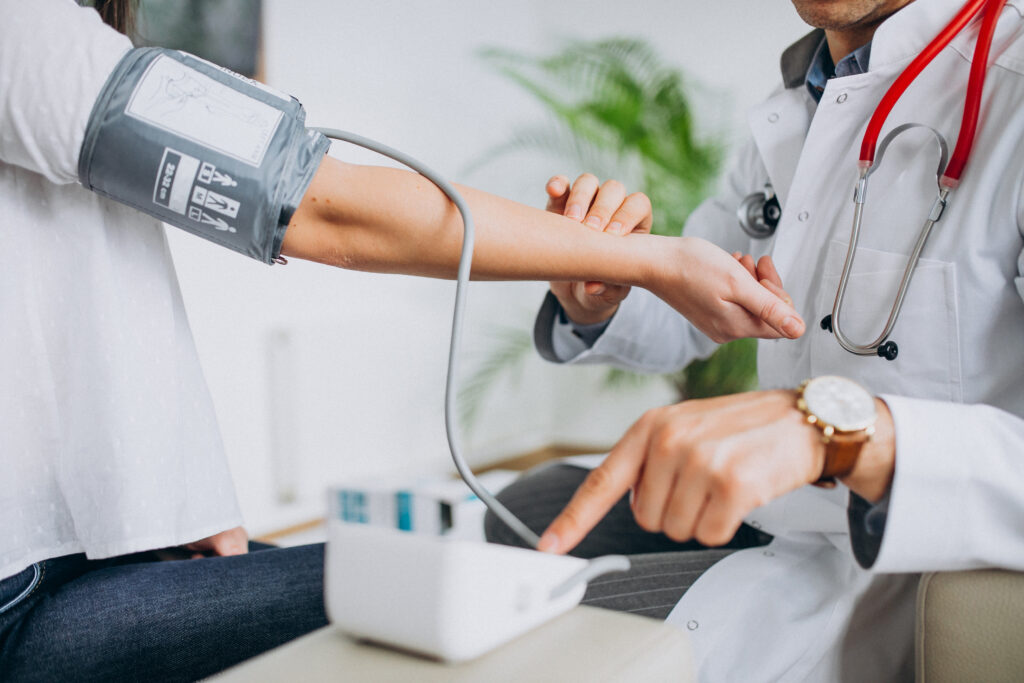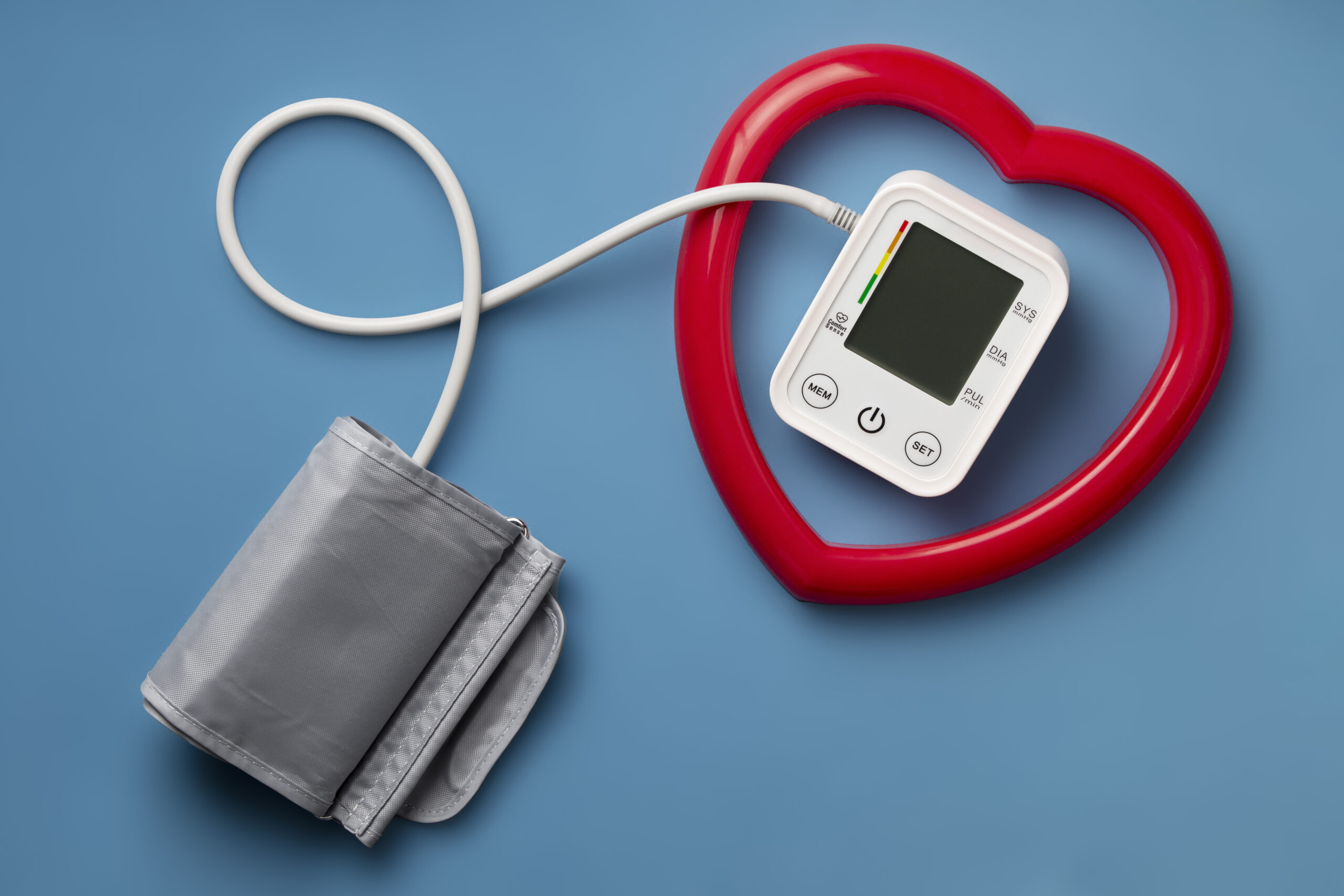Here, we are sharing information on the topic “what types is mean by hypertension causes” Age, certain medical problems, and your genetic makeup may all increase your risk of high blood pressure. Medication is one possible kind of treatment.
what types is mean by hypertension causes

High blood pressure: what is it?
Vascular blood vessels, sometimes referred to as arteries, provide greater blood flow resistance. Your blood pressure will rise in proportion to the narrower your arteries are and the greater the resistance. The elevated pressure over time may lead to various health problems, such as heart disease. It is common to have hypertension. In fact, after the 2017 revisions to the standards, this illness may now be identified in about half of adult Americans.
The normal course of hypertension development is several years. In most cases, there are no symptoms at all. However, high blood pressure can harm your blood vessels and organs, particularly the kidneys, heart, brain, and eyes, even if you don’t have any symptoms. It’s critical to spot problems early. Frequent blood pressure checks can assist both your physician and you in identifying any changes. If your blood pressure is elevated, your doctor might want you to monitor it for a few weeks to determine if it returns to normal or remains elevated. Prescription medicine and healthy lifestyle modifications are both part of the treatment for hypertension. Untreated conditions may result in heart attacks and strokes, among other health problems.
symptoms of hypertension
In most cases, hypertension is a quiet illness. Many will not show any symptoms at all. It could take years or even decades for the illness to worsen to the point where symptoms start to show. Even yet, other problems could be the cause of similar symptoms.
Symptoms
- Flushing
- smears of blood in the eyes (subconjunctival hemorrhage)
- dizziness
Among the reliable sources of severe hypertension are:
Contrary to common belief, nosebleeds and headaches are not usually associated with severe hypertension unless a person is experiencing a hypertensive crisis, according to the American Heart Association Trusted Source.
Taking frequent blood pressure readings is the most effective technique to determine whether you have hypertension. At every appointment, the majority of doctor’s offices take a blood pressure reading. Consult your doctor about your risks for hypertension and any additional readings you might require to help you manage your blood pressure if you only have annual physicals. For instance, your doctor might advise getting your blood pressure checked twice a year if you have a family history of heart disease or other risk factors for the illness. This keeps you and your physician informed of any potential problems before they become serious.
Why does hypertension occur?
Why does hypertension occur? Typically, high blood pressure develops gradually. Unhealthy lifestyle decisions, including not engaging in enough regular physical activity, can lead to it. Obesity and diabetes are two more medical problems that can raise the risk of high blood pressure. Further, it is divided into two parts:
Primary essential hypertension
Primary hypertension is another term for essential hypertension. The development of this type of hypertension takes time. This kind of hypertension affects most people. Essential hypertension usually results from the following confluence of factors:
- Genes: A hereditary predisposition to hypertension exists in certain individuals. Gene mutations or genetic anomalies acquired from your parents could be the cause of this.
- Age: People over 65 have a higher chance of developing hypertension.
- Race: Non-Hispanic Black people are more likely to develop hypertension.
- Living with obesity: Being obese can cause hypertension and other heart-related problems.
- High alcohol consumption: Men and women who regularly consume more than two drinks a day and more than one drink a day, respectively, may be more susceptible to hypertension.
- leading an extremely inactive lifestyle: there is a link between hypertension and poorer fitness levels.
- Living with diabetes and/or metabolic syndrome: People who have been diagnosed with metabolic syndrome or diabetes are more likely to develop hypertension.
- High sodium consumption: There is a tenuous link between hypertension and a daily high sodium intake of more than 1.5 grammes.
Supplementary hypertension
Secondary hypertension might worsen than initial hypertension and frequently manifest fast. A few prerequisites Among the reliable sources that could lead to secondary hypertension are:
- renal illness
- obstructive apnea during sleep
- birth malformations of the heart
- adverse drug reactions that affect your thyroid
- use of illicit substances
- long-term alcohol use and adrenal gland issues
- certain endocrine cancers
Options for treating hypertension
Your doctor uses a variety of factors to assess which course of treatment is best for you. These variables include the kind of hypertension you have and its known causes. main methods of treating hypertension
Modifications to your lifestyle may help lower your high blood pressure if your doctor diagnoses you with primary hypertension. In the event that lifestyle modifications prove insufficient or cease to be efficacious, your physician may recommend medication.
Options for treating secondary hypertension
Treatment for your hypertension will centre on treating any underlying conditions that your doctor finds to be the cause of it. For example, your doctor may try different medications that don’t have this side effect if the medication you’ve started taking is raising your blood pressure.
Even when the primary cause of hypertension has been treated, it can occasionally persist. In this situation, your doctor might recommend medicine and work with you to modify your lifestyle in order to lower your blood pressure.
Plans for treating hypertension frequently change. What initially works might eventually lose its usefulness. Your physician and you will keep collaborating to improve your course of care.
Medications
A lot of people have a period of trial and error when taking blood pressure medication. It can take your doctor trying a variety of drugs until they find one that works for you, or a combination that does.
The following are a few drugs that are used to treat hypertension:
Beta-blockers: These medications cause your heart to beat more slowly and weakly. As a result, your blood pressure will drop because less blood is pumped through your arteries with each heartbeat. Additionally, it inhibits some hormones that can cause your blood pressure to rise.Diuretics: Excess fluid and high salt levels in the body can raise blood pressure. Diuretics, sometimes referred to as water tablets, assist your kidneys in eliminating extra sodium from your body. Extra fluid in your bloodstream passes into your urine as the sodium leaves, lowering blood pressure.
ACE inhibitors: Angiotensin is a substance that narrows and tightens artery walls and blood vessels. Angiotensin-converting enzyme (ACE) inhibitors stop the body from making this substance as much. This lowers blood pressure and aids in blood vessel relaxation.
Angiotensin II receptor blockers (ARBs): ARBs prevent angiotensin from binding to receptors, whereas ACE inhibitors attempt to prevent the production of angiotensin. The chemical is necessary for blood vessels to constrict. This lowers blood pressure and relaxes blood vessels.
Calcium channel blockers: These drugs prevent a portion of calcium from reaching your heart’s cardiac muscles. Lower blood pressure and softer heartbeats result from this. Additionally, these drugs relax the blood vessels, which lowers blood pressure even more.
Alpha-2 agonists: These drugs alter the nerve signals responsible for the constriction of blood vessels. This lowers blood pressure by assisting in the relaxation of blood vessels.
Natural treatments for hypertension
You can manage the variables that lead to hypertension by making healthy lifestyle adjustments. These are a handful of the more typical ones.
creating a diet that is heart-healthy
It is essential to follow a heart-healthy diet in order to lower high blood pressure. It’s also critical for controlling hypertension and lowering the chance of problems. Heart disease, stroke, and heart attacks are some of these problems.
An emphasis of a heart-healthy diet is: fruits, veggies, whole grains, and fish-based lean proteins
Increasing exercise: Exercise can strengthen your cardiovascular system and naturally lower blood pressure, in addition to aiding in weight loss (if prescribed by a physician).
Try to get 150 minutes a week of moderate exercise (trusted source). That equates to thirty minutes, five times a week.
Getting to a healthy weight: If you have obesity, lowering your blood pressure can be achieved by eating a heart-healthy diet, staying at a moderate weight, and engaging in more physical exercise.
Controlling tension: Stress management is greatly enhanced by exercise.
Other pursuits may also be beneficial. Among them are:
- meditation
- relaxing muscles with deep breathing
- Tai Chi or Yoga
Giving up smoking and consuming less booze: Your doctor would probably urge you to stop smoking if you have high blood pressure and smoke. Tobacco smoke contains compounds that can harden blood vessel walls and harm bodily tissues.
Less alcohol consumption: If you consistently drink too much alcohol or have an alcohol addiction, get help cutting back on your intake or quitting completely. Excessive alcohol use can cause blood pressure to rise.
Conclusion: Deciphering Hypertension: Unveiling Causes and Seeking Solutions
In unraveling the intricate web of hypertension, we’ve explored its various types and delved into the underlying causes. From essential hypertension, often linked to lifestyle choices and genetic factors, to secondary hypertension, a result of underlying health conditions, understanding the nuances is key to effective management.
Hypertension, often dubbed the “silent killer,” demands our attention and proactive measures. Lifestyle choices, such as a balanced diet, regular exercise, and stress management, play pivotal roles in preventing and managing hypertension. Unhealthy habits, such as excessive salt intake and sedentary living, can significantly contribute to elevated blood pressure levels.
It’s crucial to recognize the interconnectedness of hypertension with other health issues. Obesity, for instance, emerges as a significant contributor to hypertension, further emphasizing the importance of holistic health practices.
As we navigate the complexities of hypertension, let’s not only focus on the numbers but also on the lifestyle adjustments and awareness that can lead to positive changes. Regular health check-ups, adherence to prescribed medications, and open communication with healthcare providers are vital components of hypertension management.
In the journey towards better cardiovascular health, education is empowering. By fostering an understanding of hypertension types and causes, we pave the way for a healthier future. It’s time to prioritize our well-being, making informed choices that contribute to a life free from the silent grip of hypertension.
Let this knowledge be a catalyst for positive change, encouraging individuals to take charge of their health, and collectively, we can work towards a world where hypertension is not just managed but prevented.

